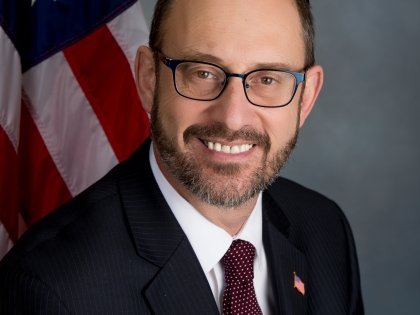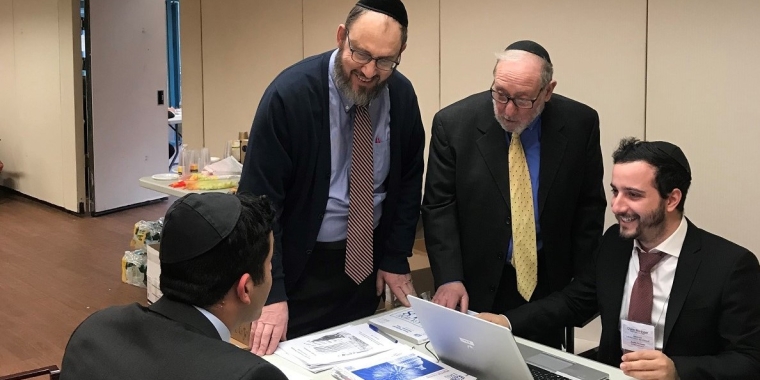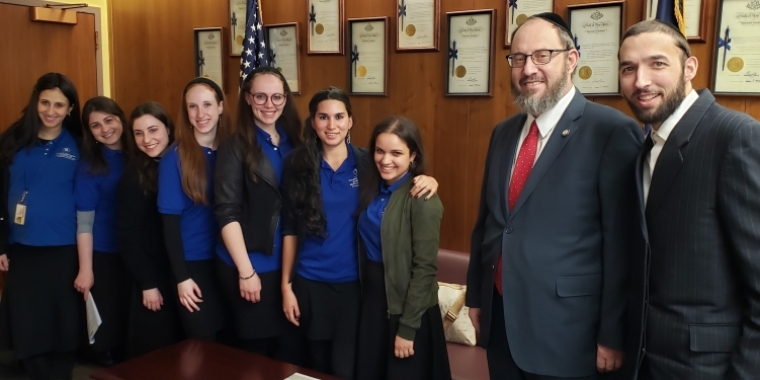
Felder: NYC Must Stop Body Snatchers
Simcha Felder
April 27, 2015
Senator Simcha Felder (D, Brooklyn), together with Assemblyman Michael Simanowitz of Queens, is calling on Mayor de Blasio to prevent the release of unclaimed bodies without prior written authorization by the deceased person or their next of kin.
“Releasing unclaimed bodies for embalming or dissection without receiving authorization from the spouse or next of kin of a deceased person is shocking and fails to take into consideration that person’s religious practices or personal beliefs,” wrote Senator Felder in a letter to New York City’s Mayor Bill de Blasio. “There are many people, including Jews, Muslims and others, who are opposed on religious grounds to embalming and/or autopsies.”
“What we are trying to do is create a little more clarity,” Assemblyman Simanowitz said. “If there is no clear consent, it should not be assumed they are okay with their body going to science.”
While the City suspended the release of unclaimed bodies, the American Academy McAllister Institute of Funeral Service, Inc. (AAMI), the City’s only embalming school, has sued to have the suspension permanently lifted, claiming that it impedes proper education of its students. Although the court date is set for April 28th, the City lifted its suspension on April 6th, prior to any court ruling, thus allowing AAMI access to unidentified remains within only 48 hours after death.
To date, AAMI is the only New York mortuary institution to sue for the reinstatement of the unclaimed bodies law. Unlike medical schools, which normally get their cadavers from benefactors wishing to donate their body to science, AAMI relies heavily on the use of New York City’s unclaimed remains for its embalming courses. Such reliance increases the importance of continuing to suspend the release of unidentified bodies in order to maintain a level of sanctity for the deceased person who – due to religious reasons or otherwise – chose not to donate their body to AAMI prior to death.
“This is about respect for the dead; it’s about decency,” said Rabbi Yaakov Meyer, Director and Founder of Misaskim. “Just as New York State requires a signed consent for donating organs, it should certainly require consent before allowing a body to be used for teaching purposes.”
Furthermore, religious and secular leaders argue that the 48 hour rule does not provide enough time to properly identify and contact a decedent’s family. In many cases, there is simply no way that the person’s remains could be claimed within 48 hours. In one of the most heavily toured cities in the world, it is not unlikely that a person’s next of kin lives outside New York State, and potentially, outside the country altogether. In such cases, more than 48 hours would be needed to properly identify and track down the next of kin.
“There are many cases where people die with no identification on them at all,” says Rabbi Zvi Gluck, Director of Amudim Community Resources. “In those cases, it requires more time and effort – often more than 48 hours – to find the next of kin, but it is worth it to provide closure and peace of mind to the family.”
“There is no greater mitzvah, or good deed, than to care for those who have no one else to bury them,” said Rabbi Elchonon Zohn, the Director and President of the National Association of Chevra Kadisha, which provides burial services for the Jewish community. “Communities should be given the opportunity to take care of the deceased.”
“The current law must be changed in order to respect the preferences of the deceased,” said Senator Felder. “That is why I have sponsored Senate Bill S4430, which will ensure that after leaving this world, people are properly cared for even if they did not leave behind family or friends to bury their remains.”
Share this Article or Press Release
Newsroom
Go to NewsroomFree Income Tax Preparation & Filing at Touro College
March 15, 2019


